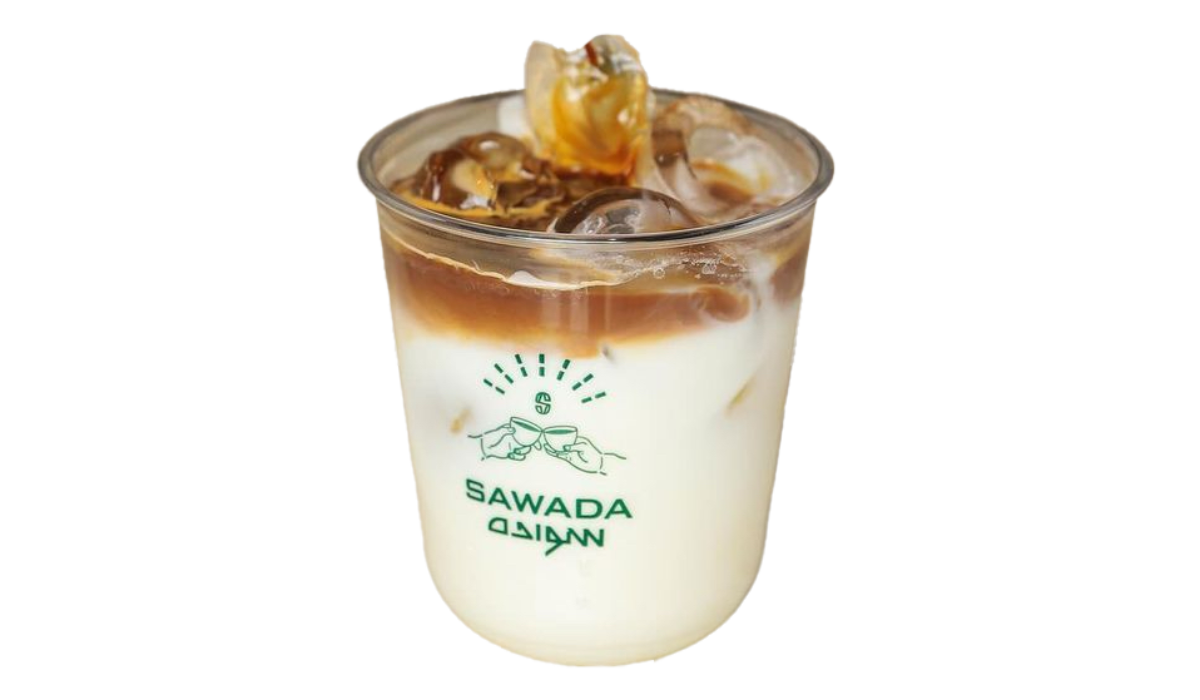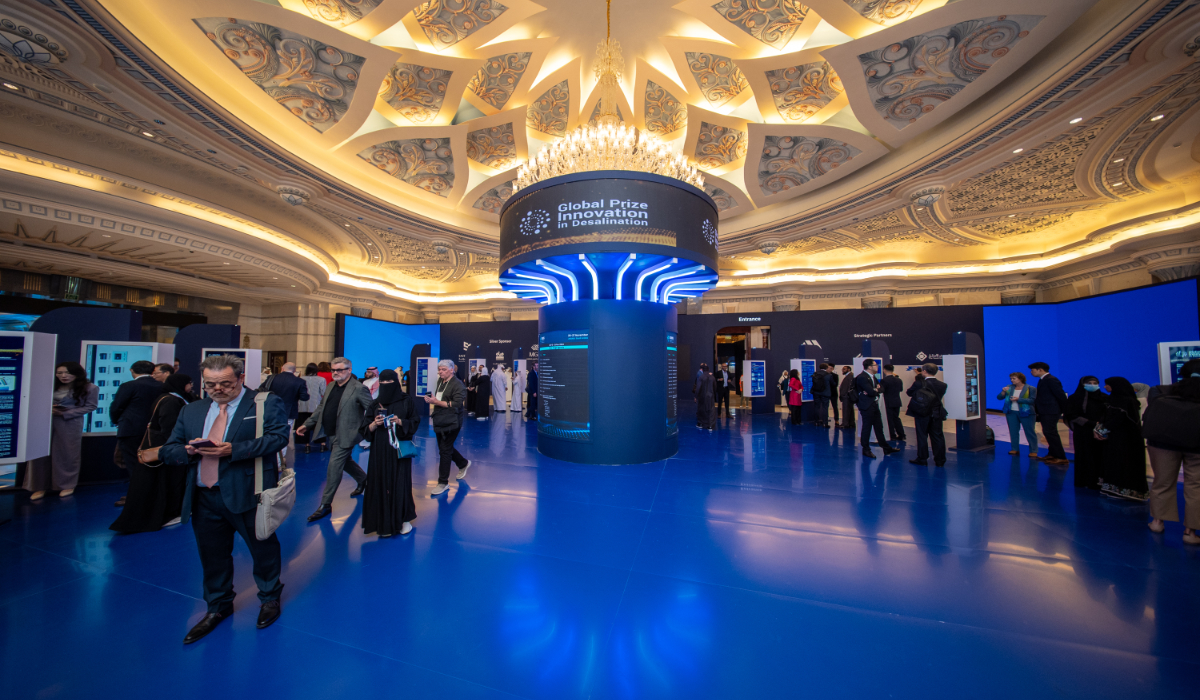RIYADH: In the bustling heart of Saudi Arabia, a culinary revolution is unfolding. Restaurant entrepreneurs are launching new coffee shops and fast-food restaurants that are redefining the dining landscape by offering high-quality food and drinks at accessible prices. The cherry on top? They’re hiring local talent, bolstering both the community and the economy.
Imagine walking into a newly opened coffee shop or fast-food joint with modest expectations, only to be pleasantly surprised by the taste and quality of your order. This is the new norm sweeping across the nation. These establishments are quickly earning reputations for delivering great food and drinks without the hefty price tags.

As more restaurant entrepreneurs enter the market, the competition is driving everyone to elevate their game. (Instagram/sawada.ksa)
“Honestly, I always look for a fair price when it comes to my coffee, and this place fits the bill perfectly,” frequent customer Khalil Al-Azwari told Arab News. “This coffee shop is one of my favorites, and they serve the best V60 for only SR10 ($2.67). It’s great value for money.”
A cornerstone of this transformation is the focus on employing local workers. By prioritizing job opportunities for Saudis over expats, these businesses are not only boosting the economy but also fostering a stronger sense of community.
Establishing a new business requires a deep and thorough study of market needs, sound management, and dedication to the business.
Talat Hafiz, Financial analyst
“Working here has been an amazing experience,” said Ahmed Saleh, a barista at a prominent coffee shop in Riyadh. “I get to work with top-notch ingredients and learn new skills. Plus, it’s great to see familiar faces enjoying the coffee and food we prepare.”
The allure of these new dining spots extends beyond just offering great food and drinks. By prioritizing local hires, these businesses are nurturing a sense of community and providing valuable job opportunities. This approach represents a refreshing change in a country where the service industry has traditionally been dominated by foreign workers.

As more restaurant entrepreneurs enter the market, the competition is driving everyone to elevate their game. (Instagram/sawada.ksa)
Local customers are equally thrilled with the shift. “I love that these new places are hiring people from our own cities,” said Bashayer Mohammed, a regular patron. “It makes the experience feel more personal and connected to our community.”
However, not everyone is embracing this wave of new dining options. Some local business owners are feeling the heat as these large restaurant entrepreneurs gain popularity. Many local establishments, which often have higher prices, are struggling to compete.
“It’s tough,” said Saad, who used to own a coffee shop in Alkhobar. “We can’t match the prices of these big traders, and people are noticing. We’re losing customers, and it’s affecting our livelihood."
Saad opened his coffee shop in October 2021 with high hopes for success. “In the first month, the numbers were doing great,” he recalled. However, as the months went by, business began to decline steadily. Despite his efforts to adapt, the situation worsened. “It was surprising because it got way worse each month,” Saad said.
Determined to save his business, Saad tried everything. “We changed the menu, collaborated with coupon companies, and partnered with delivery apps. We even invested in advertising,” he explained. Despite trying every strategy he could think of, nothing seemed to work. “None of it made a difference,” he admitted.
On top of these challenges, Saad faced unexpected financial burdens. “The rent was much higher than I expected, and I didn’t fully account for staff salaries and insurance,” he said. These expenses quickly added up, straining his finances.
The increase in costs has led most merchants to reduce expenses, cut salaries, and lay off employees. “This is a sign of failure,” Saad added. “Successful merchants invest in the human element and intellect to create and innovate solutions for survival. The general public has a consumer mentality, not a problem-solving one.”
Desperate, Saad even tried to sell the coffee shop to investors. “It just didn’t work,” he said. Ultimately, the mounting losses forced him to close the coffee shop in 2023. “It was a huge loss for me,” Saad reflected.
As more restaurant entrepreneurs enter the market, the competition is driving everyone to elevate their game. Local businesses are starting to take notice and are striving to match the quality and affordability that these new players offer, although it remains a challenging transition.
In an interview with Arab News, financial analyst Talat Hafiz emphasized the crucial role that small and medium enterprises play in the Saudi economy: “SMEs in Saudi Arabia and elsewhere around the world are the backbone of the economy and business activities.”
Recognizing this, the Saudi government has been proactive in fostering the growth of these enterprises. It has made significant efforts to facilitate the growth of SMEs and enhance their contribution to the Kingdom’s non-oil gross domestic product from 20 percent to 35 percent by 2030, Hafiz added.
The establishment of the General Authority for Small and Medium Enterprises, also known as Monshaat, in 2016 is a testament to these efforts. “Monshaat was created to regulate, support, and develop the SME sector in the Kingdom,” Hafiz said.
Additionally, the Loan Guarantee Program, established in 2006, aims to overcome financing obstacles for economically viable SMEs lacking the necessary guarantees. Despite these avenues of support, many SMEs still face significant challenges. “There are still some companies that fail to continue their businesses successfully and close their doors within the first year or by the third year of operation,” he said.
Hafiz has identified several reasons behind these failures. “Most complaints from SME owners are due to various fees imposed by the government, especially violation fees,” he said. However, he believes that the primary reasons for failure lie elsewhere.
“The main reasons behind the failure of SMEs, especially startups, include a lack of careful consideration of market needs and different consumer preferences, lack of management experience, technical and professional expertise, and the imitation of adding value to the market,” Hafiz added.
He also highlighted the importance of management dedication and sufficient financial resources. “Establishing a new business requires a deep and thorough study of market needs, sound management, and dedication to the business. It also requires specific talents that allow the company to respond quickly and effectively to market and economic changes,” he noted.
While the Saudi government has regulated fines to be more transparent, fair, and progressive, Hafiz stresses that the focus should not be limited to government fees. “The focus on business failures should also address the main and real causes of businesses’ failure. The government fines are transparent and progressive, and it is also not permissible to impose them the first time, as there is a warning that precedes the violation.”






























